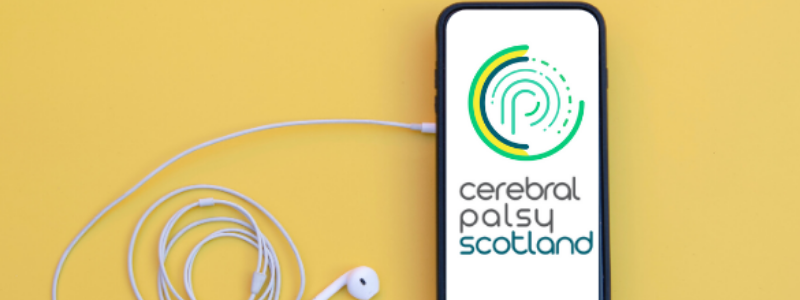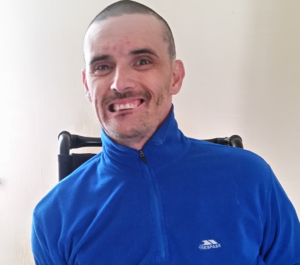My name is Barry Smith and I am 42 years old. I am from Scotland and I have cerebral palsy.
Down to this I use a power wheelchair and I speak with a Lightwriter too, but this don’t stop me making the most of my life.
Before I go on with this I am going tell you how I write this up, down to my hands is too jumpy to type. I use my toe to type this up, which is a skill too.
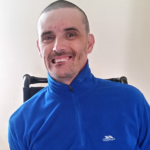 When I was about 23 years old I lived in Red Cross in Irvine. When I started there I was a part of the Gateway project which was for 16 to 26 year olds to show us new skills. One of the best things I got out of the project I was able go on a course call Part and Polly making with the Gateway. One of the things I got from doing the course I was told no matter what you are able to do anybody got a skill even just a happy face.
When I was about 23 years old I lived in Red Cross in Irvine. When I started there I was a part of the Gateway project which was for 16 to 26 year olds to show us new skills. One of the best things I got out of the project I was able go on a course call Part and Polly making with the Gateway. One of the things I got from doing the course I was told no matter what you are able to do anybody got a skill even just a happy face.
How my communication aid helps me
In 2006 I made my goal which was to get my own home what I am still in today. I don’t think I would be able to this without my Lightwriter.
Then two years later I did a talk about my life at Communication Matters Conference which I loved on my SL35. When I was down at the conference I saw the SL40 what was the new Lightwriter which was just coming out. What I remember I got to try this – what I loved about this you were able to text on it so I send the first text in my life to my Mum. She couldn’t believe it was from me, because she knew I couldn’t send texts down to my hands. My Mum phone the person who I was with, and he told it were from me on a new aid.
A few months later Ayrshire got me one. Once again I text my Mum and it felt like Christmas. In 2011 I got SL40+ – that mean I could phone people on it and they could call me on. Then I started doing little project in Scotland for the Right to Speak what I loved do for them. In 2012 I help with a green paper for government.
What I do not like being a communication aid user
When I was using the Connect Lightwriter as you know people could telephone with this. A few times I trying to make a business call. When the person answers and I said who I was and I told them I am using a communication aid to telephone them. The person who I were talking to told me they were sorry I needed to end this call, down to you aren’t using your own voice under the data act. When I put the telephone down I felt disabled and so mad. I feel my communication aid were stopping me in my life. Now I think people should know about this.
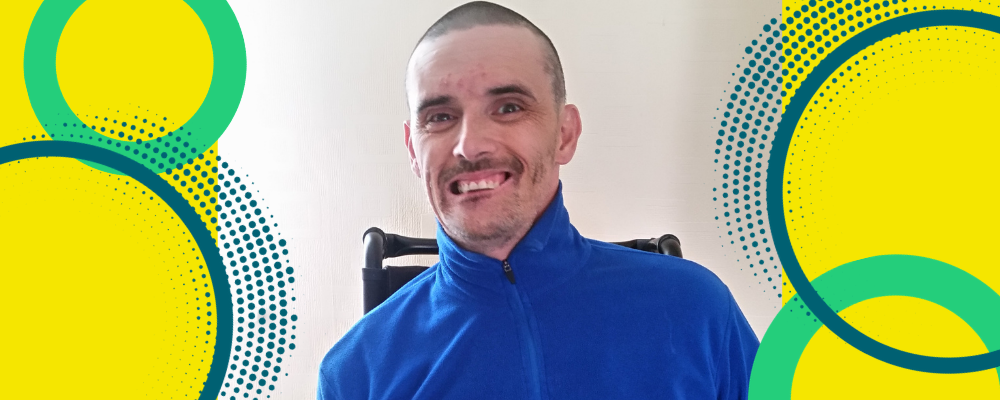
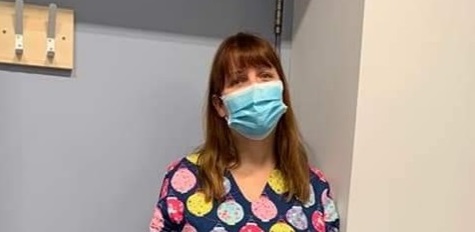
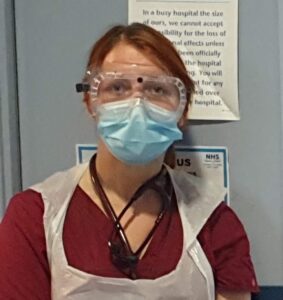 However, it is not all doom and gloom in the NHS. While there can always be things you look back on and think you could have done differently, everyone working has pulled together like never before and tried their absolute best. This time last year we had no known treatment for COVID – now we have several. The scientists have worked extraordinarily hard. I was lucky enough to have the opportunity to enrol in the Oxford vaccine trial last June (and as I subsequently found out in January – lucky to have been in the COVID vaccine group). Just 6 months on that vaccine was being rolled out to give us a route out of this pandemic, which is amazing. We have tried to continue as much of our other non-COVID work as possible. For example in the work I do with older cancer patients we have been using virtual means. COVID has given us an opportunity to change the way we work and some of that may be for the better.
However, it is not all doom and gloom in the NHS. While there can always be things you look back on and think you could have done differently, everyone working has pulled together like never before and tried their absolute best. This time last year we had no known treatment for COVID – now we have several. The scientists have worked extraordinarily hard. I was lucky enough to have the opportunity to enrol in the Oxford vaccine trial last June (and as I subsequently found out in January – lucky to have been in the COVID vaccine group). Just 6 months on that vaccine was being rolled out to give us a route out of this pandemic, which is amazing. We have tried to continue as much of our other non-COVID work as possible. For example in the work I do with older cancer patients we have been using virtual means. COVID has given us an opportunity to change the way we work and some of that may be for the better.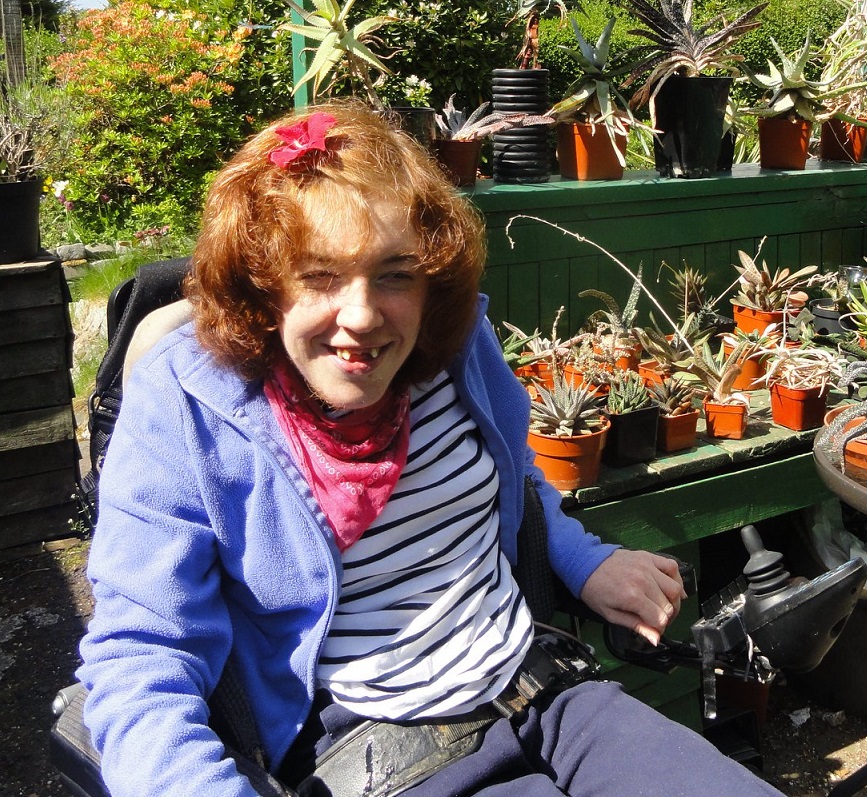
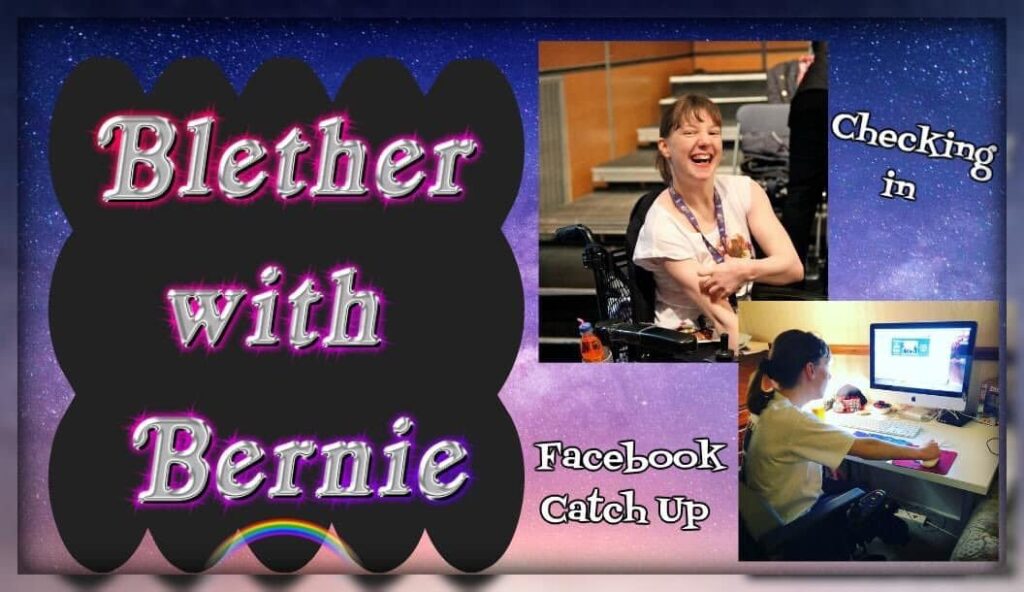
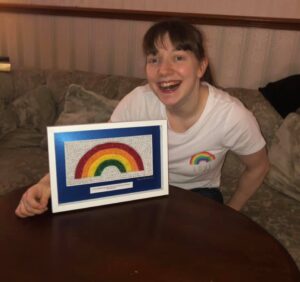 I have only been out of my house a handful of times since last March, mostly when the restrictions started to ease in the summer- getting to go for a couple of cycles was a dream but then the virus was starting to spread again and I didn’t want to take any chances so I stopped going out. It is crazy to think that I have spent the past year in the house as I am so busy- there still isn’t enough hours in the day for me!
I have only been out of my house a handful of times since last March, mostly when the restrictions started to ease in the summer- getting to go for a couple of cycles was a dream but then the virus was starting to spread again and I didn’t want to take any chances so I stopped going out. It is crazy to think that I have spent the past year in the house as I am so busy- there still isn’t enough hours in the day for me!